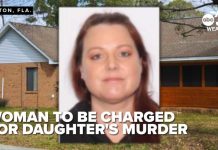
In the wake of a tragic mass shooting at a Minneapolis Catholic school, critics are outraged as the city’s mayor used the press conference to spotlight transgender rights—while the community mourns the loss of innocent children.
Story Snapshot
- Annunciation Catholic School targeted in a shooting; two children killed, 17 wounded.
- Shooter identified as Robin Westman, a transgender woman with family ties to the school.
- Mayor’s response drew criticism for focusing on transgender issues amid community grief.
- Incident reignites debate over school safety, gun rights, and cultural priorities.
Community Shaken by Tragedy at Annunciation Catholic School
On August 27, 2025, Annunciation Catholic School in Minneapolis became the site of a devastating mass shooting during morning Mass. The assailant, identified as 23-year-old Robin Westman—a transgender woman who had changed her name from Robert in 2019—opened fire into the church, killing two children and injuring 17 others before dying by suicide at the scene. The event sent shockwaves through the local community, especially considering Westman’s mother was a former parish secretary at the school, highlighting deep personal ties to the institution. Law enforcement responded swiftly, confirming that there was no ongoing threat after the attack.
This shooting comes amid an ongoing national debate about the safety of schools and churches, with the trauma compounded by the fact that the attack targeted a religious service at the beginning of the school year. The school and parish, both longstanding pillars in South Minneapolis, have closed temporarily for investigation and recovery. Families, teachers, and local leaders are grappling with grief and looking for answers as support and counseling services are put in place for those affected.
Mayor’s Press Conference Sparks Controversy
In the immediate aftermath, Minneapolis Mayor Jacob Frey addressed the public, but instead of focusing solely on the victims and community safety, he used the platform to speak out about transgender rights. This move drew immediate criticism from many in the community and across the country, who saw the remarks as misplaced and insensitive given the circumstances. For many conservative observers, the mayor’s focus appeared to shift attention away from the core issue—protecting children and defending faith-based institutions—toward what they perceive as a continued promotion of progressive agendas even in moments of crisis. Social media reactions reflected frustration, with many questioning the priorities of city leadership and calling for renewed attention to the real threats facing families and schools.
Law enforcement and federal agencies, including the Minneapolis Police Department and the FBI, continue to investigate the motive and any connections the shooter may have had to the school. There is no public record of prior threats or violence associated with Westman before the incident. While some commentary has focused on the shooter’s gender identity, law enforcement and mental health experts urge caution against stigmatizing communities based on isolated incidents, emphasizing that the intersection of gender identity, mental health, and violence remains complex and poorly understood.
Renewed Debates Over School Safety and Cultural Priorities
The tragedy at Annunciation Catholic School has reignited debates over Second Amendment protections, school security, and the influence of progressive social policies in American life. With most victims being children and the attack taking place during a religious service, many families and faith-based communities are demanding stronger security measures and a return to traditional values in policymaking. Critics argue that government overreach and misplaced social agendas distract from the urgent need to safeguard children and uphold constitutional rights. Political leaders, such as U.S. Senator Amy Klobuchar, have issued statements on the tragedy, with calls for both healing and policy action echoing through the local and national conversation.
"Minneapolis mayor uses Catholic school shooting presser to speak out about transgender rights — as gunman ID’d as trans" – New York Post #SmartNews https://t.co/3aod8VPIj7
— BJ Rodrigue (@rodrigue_bj) August 28, 2025
As the investigation continues, the community faces not only the immediate trauma of loss, but also the broader implications for how schools, churches, and local governments respond to threats. The event has already prompted heightened security and mental health support at area schools. The broader Minneapolis community, particularly those with ties to the school, now confronts ongoing grief and a renewed sense of vulnerability. At the same time, this tragedy has brought renewed scrutiny to how public officials communicate in crisis—raising questions about whether cultural and political agendas are eclipsing the fundamental duty to protect American families and values.
Sources:
23-year-old identified as suspect in Minnesota church shooting that killed 2 children, wounded 17
Who is the suspect in Annunciation Catholic School shooting in Minneapolis?
What we know about the shooter who killed 2 and wounded 17 in Minneapolis
Annunciation School shooting: Minneapolis, Minnesota suspect shooter









